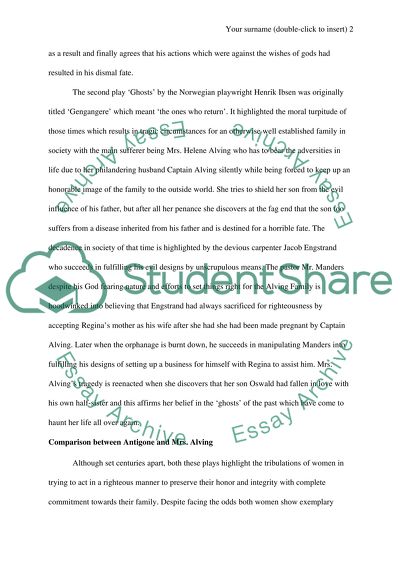Cite this document
(“Antigone and Mrs. Alving: Victims of Their Own Generations Essay”, n.d.)
Antigone and Mrs. Alving: Victims of Their Own Generations Essay. Retrieved from https://studentshare.org/literature/1548525-comparative-essay-for-world-literature
Antigone and Mrs. Alving: Victims of Their Own Generations Essay. Retrieved from https://studentshare.org/literature/1548525-comparative-essay-for-world-literature
(Antigone and Mrs. Alving: Victims of Their Own Generations Essay)
Antigone and Mrs. Alving: Victims of Their Own Generations Essay. https://studentshare.org/literature/1548525-comparative-essay-for-world-literature.
Antigone and Mrs. Alving: Victims of Their Own Generations Essay. https://studentshare.org/literature/1548525-comparative-essay-for-world-literature.
“Antigone and Mrs. Alving: Victims of Their Own Generations Essay”, n.d. https://studentshare.org/literature/1548525-comparative-essay-for-world-literature.


